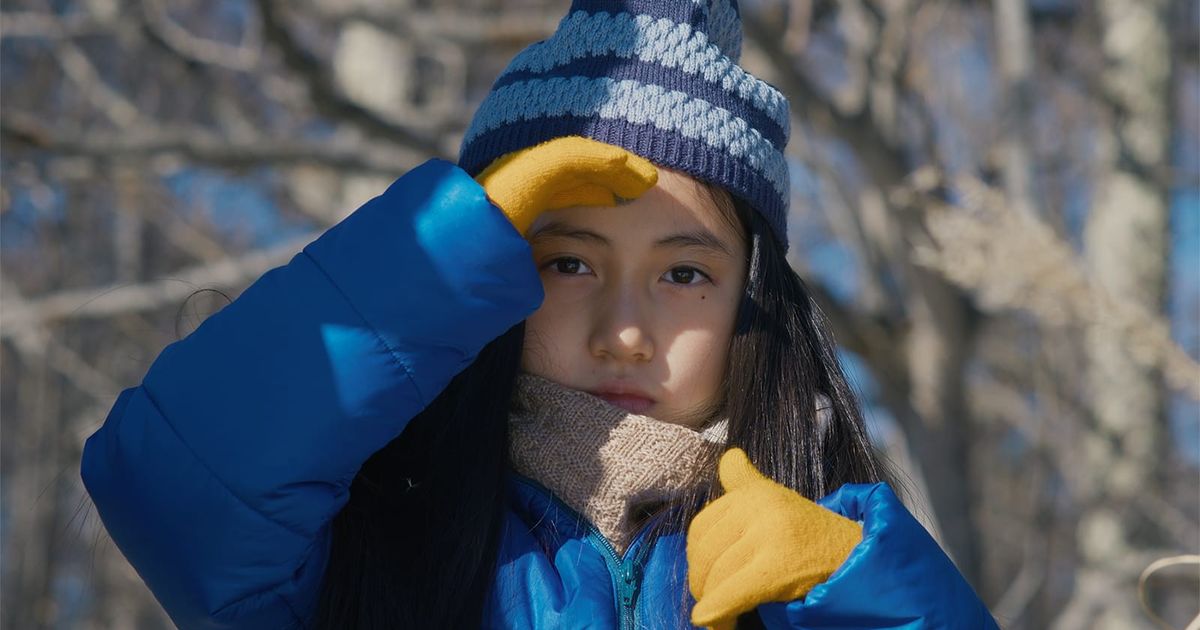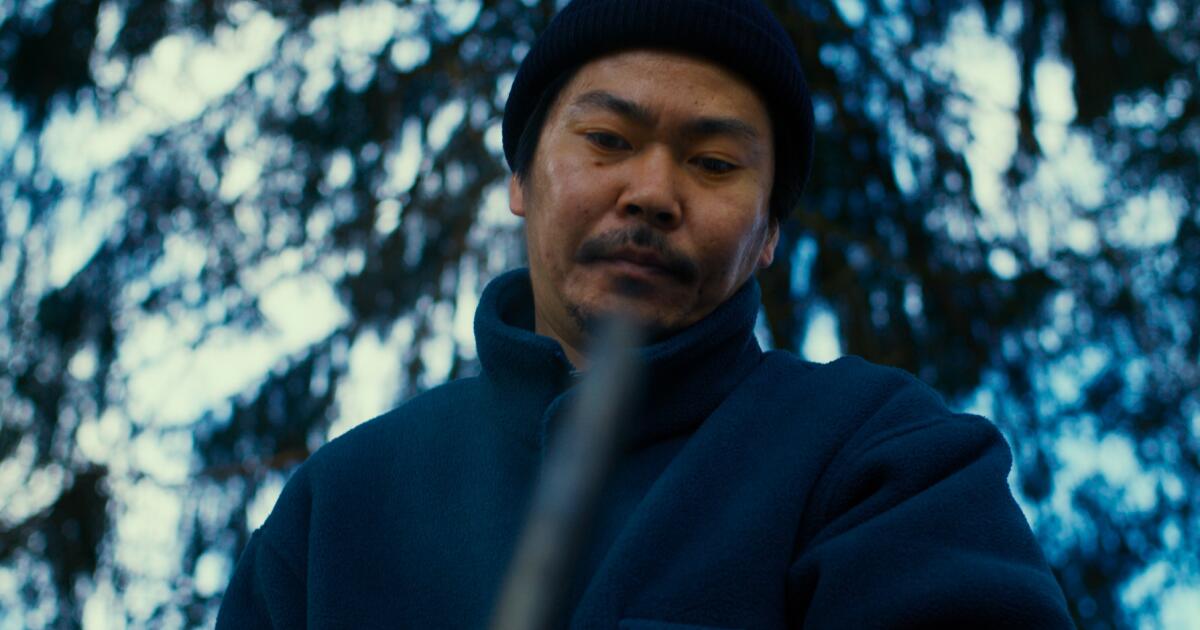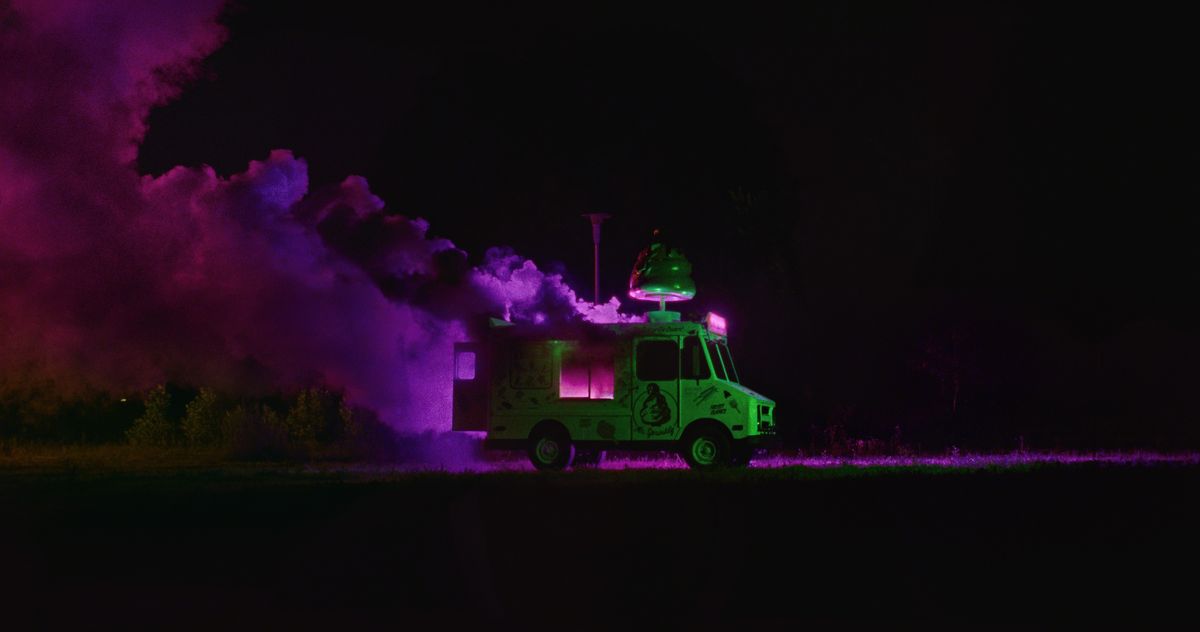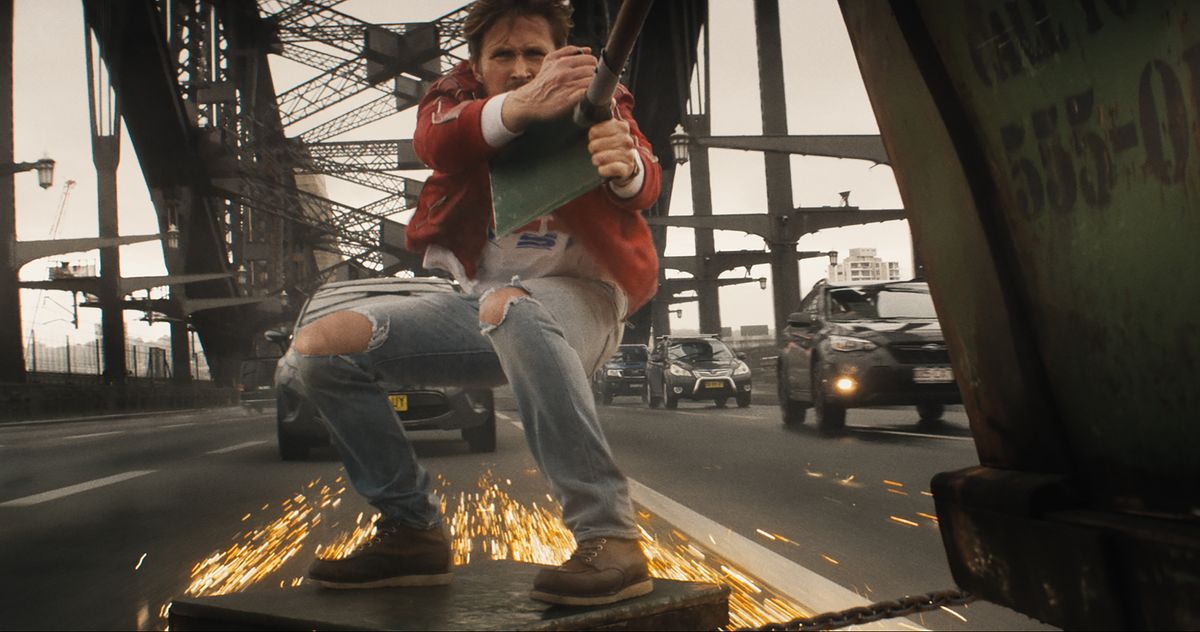Ryo Nishikawa in Evil Does Not Exist.
Picture: Janus Films
Travel My Car or truck director Ryūsuke Hamaguchi’s Evil Does Not Exist commences and finishes with the digicam tracking as a result of a forest, hunting up. In the 1st shot, daylight streams by means of the cover of trees the temper is contemplative. The later on shot feels decidedly grimmer: Evening is settling in, and the sky is a deep, darkish, almost-black blue, the moon shining by a haze of what may possibly be clouds or smoke, as we hear distressed breathing on the soundtrack. In between all those two visuals lies a story that Hamaguchi tells in indirect, unassuming vogue, slipping in occasional moments of dreamy uncertainty so that his despondent, enigmatic, pretty much surreal ending normally takes us by shock. This need to be what it feels like to be the proverbial slowly boiling frog: Almost everything seems ordinary, then it begins to not seem usual at all. And then, ahead of we have a likelihood to fully comprehend it, our planet is above.
Hamaguchi’s finest energy has been his capacity to engagingly depict character interactions at what normally feels like the rate of genuine everyday living. So the quietly wandering, elliptical high-quality of the film’s early scenes really feel like a little bit of a departure from his current and most effective-recognised do the job. We devote time with widower Takumi (Hitoshi Omika), who lives with his daughter Hana (Ryo Nishikawa) and makes a dwelling carrying out odd employment in and about the village of Mizubiki, chopping firewood, harvesting plants, amassing water from the springs for the area ramen joint. Just after he picks Hana up from faculty — a job for which he’s often late — they stroll as a result of the woods as he teaches her about distinctive plants and animals, testing the tiny girl’s awareness.
The peaceful lifetime of this village is interrupted with the arrival of two representatives from a expertise agency which is planning to open a “glamping” small business nearby. In the film’s most bravura scene, a professional forma slide presentation to a group of locals devolves into an prolonged confrontation when the villagers start to check with thoughts about a wide range of considerations, most notably the placement of the site’s new septic tank, which is far too tiny for the quantity of envisioned consumers and also upstream from the town’s clean-drinking water resource. This is even now a Ryūsuke Hamaguchi movie, so the ensuing argument remains generally understated truthfully, for a group of people today who could be about to take in literal shit so that loaded Tokyoites can fake to tough it for a evening, the citizens of Mizubiki seem to be admirably restrained.
Evil Does Not Exist rings unnervingly real in its particulars, from the weird bedfellows produced by modern-day capitalism to the tranquil contempt with which town folk take care of poorer villagers. Why is a business like this receiving into the glamping business in the very first place? Why hasn’t it performed the appropriate investigate and preparing? Why did it send out talent agents to reply environmental and technological inquiries? There are government pandemic subsidies that are about to operate out if they are not employed the firms are rushing, and in addition to, what would these yokels know? Certainly they will not thoughts a small feces dripping into their ingesting h2o.
Hamaguchi treats these issues with astute emphasis and realism. He doesn’t give us obvious villains, instead portraying different men and women from distinctive worlds, each attempting to endure in their very own way. Hence, we may not discover Evil Does Not Exist also has a powerful undercurrent of desire logic functioning during. This factor comes to the fore in the final act as a pall of despair requires over the movie. We may well not pretty have an understanding of what’s happening narratively in these later on scenes — Hamaguchi pointedly would make it tough to convey to what’s a symbol, what is an illusion, and what’s a flashback — but I suspect most of us will intuitively grasp what we’re viewing. In its personal discreet, modest way, Evil Does Not Exist leaves us with a haunting sense of personal and ecological apocalypse.










